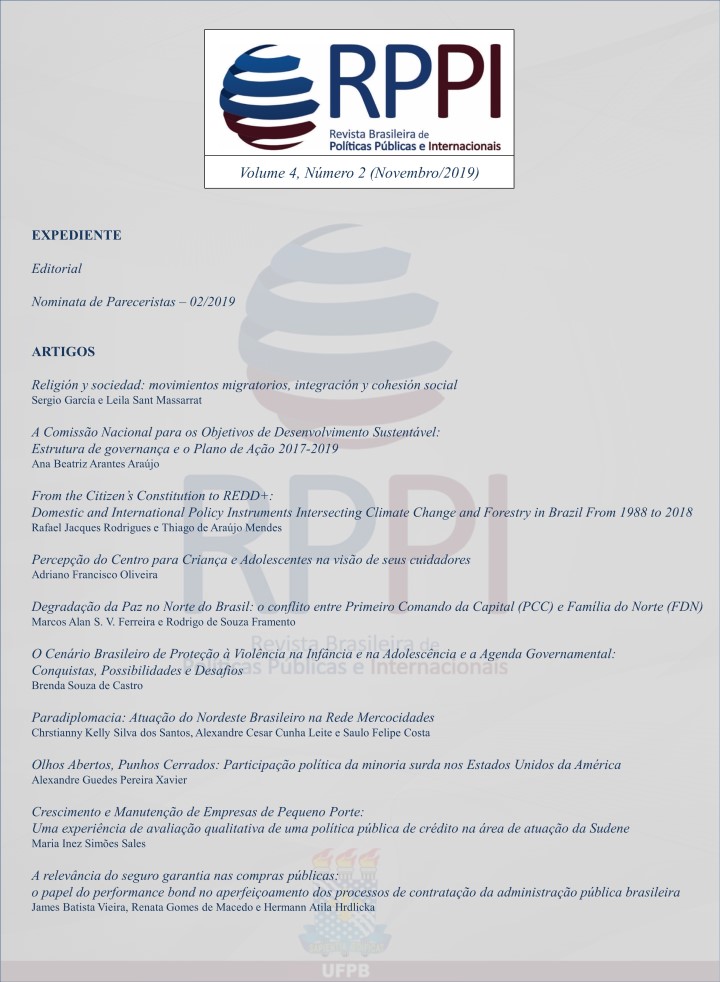Degradação da Paz no Norte do Brasil
O conflito entre Primeiro Comando da Capital (PCC) e Família do Norte (FDN)
DOI:
https://doi.org/10.22478/ufpb.2525-5584.2019v4n2.48617Abstract
This paper aims to understand the spread of violence in the northern region of Brazil, the result of the conflict between the Northern Family criminal organization and its ally, the Comando Vermelho (CV), against the First Command of the Capital (PCC). The struggle is part of the quest for mastery of an international drug route, the Solimões Route. The conflict analysis period took place between October 2016 and May 2019, the beginning and the peak of this conflict. The methodology was based on the qualitative analysis of a single case study referenced by the concept of Violent Non-State Actors. The aim here was to understand how the fight between criminal organizations impacts on peace in the north of the country and, for such analysis, was based on interviews and national and international media sources, selected according to the appropriate methodological technique for this purpose. In conclusion, it should be noted that the region suffered from the disruption of the CV and the PCC, which led to an increase in violence in the North over the dispute over the trafficking route. The various instances representing the state proved ineffective in reversing the picture of violence, and were ineffective in their efforts to dismantle the country's organized crime.
Downloads
Downloads
Published
Issue
Section
License
Autores que publicam nesta revista concordam com os seguintes termos:- Autores mantém os direitos autorais e concedem à revista o direito de primeira publicação, com o trabalho simultaneamente licenciado sob a Licença Creative Commons Attribution que permite o compartilhamento do trabalho com reconhecimento da autoria e publicação inicial nesta revista.
- Autores têm autorização para assumir contratos adicionais separadamente, para distribuição não-exclusiva da versão do trabalho publicada nesta revista (ex.: publicar em repositório institucional ou como capítulo de livro), com reconhecimento de autoria e publicação inicial nesta revista.
- Autores têm permissão e são estimulados a publicar e distribuir seu trabalho online (ex.: em repositórios institucionais ou na sua página pessoal) a qualquer ponto antes ou durante o processo editorial, já que isso pode gerar alterações produtivas, bem como aumentar o impacto e a citação do trabalho publicado (Veja O Efeito do Acesso Livre).




_.jpg)






.png)


.jpg)
_.png)
